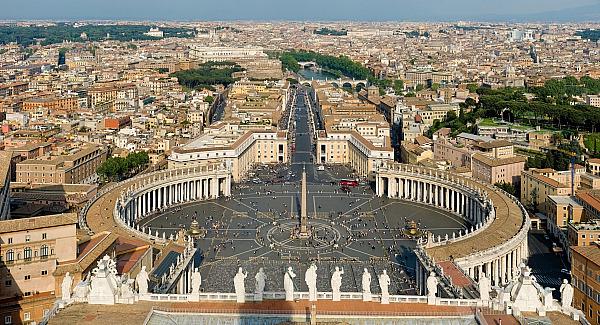|
Pope’s stance on financial issues augurs well
By Joe Gill
First, a confession. I’m not much of a Catholic and have a limited relationship with religion. A succession of awful stories about the Church’s role in destroying so many young lives over recent decades did not help. The material trappings that evolved around the upper levels of the institution were also in conflict with what I assumed Catholicism should be all about. Against that backdrop there have been two interventions in the financial world by Pope Francis that have caught my eye in the last month. Both point to a different and more encouraging impulse within the Church and, if replicated in other parts of its moral sphere, may resuscitate belief in its ability to do good. The first notable engagement by the Pope was to gut the Vatican Bank and the second was his opinion about commodity speculation. For years, the Vatican Bank has been mired in controversy and a suspicious odour has emanated from it for decades. A lack of transparency was a core problem and it has been difficult to ascertain what purpose it had aside from providing power for certain individuals. Pope Francis has done everyone a favour by overseeing a massive overhaul which has taken profits down 97% after a €28.5m exceptional cost. More importantly, the leadership team in the bank has been radically changed. Alongside these changes, 3,000 client accounts have been closed. On commodities, the Pope has been direct and forceful, dynamics that usually play well in financial circles. He argues wealth created by financial speculation in commodities is “intolerable” and speculation on commodities was a “scandal”. “Speculation on food prices is a scandal which seriously compromises access to food on the part of the poorest members of our human family.” To put this in market parlance, having long and short positions in food commodities that are not related to the underlying use of those products is a bad thing. A good example of this happened around the time of the global financial crisis in 2008. In a period when economic demand had suddenly weakened around the world, a range of food commodity prices shot up on spurious arguments by investment banks that supply shortages were occurring. That led to a period of rioting in developing economies as food prices, which disproportionately impact those on lower incomes, rose sharply. It was around that time I heard about an investment bank having a load of sugar physically delivered to it as option trade went wrong. In the oil market, another bank has a chartered ship carrying oil around the ocean as it tried to exploit price differences. What on earth were investment banks doing “playing” commodity markets? While industrial users of food can legitimately require puts and calls to help them manage processed food manufacturing, the concept of financial intermediaries holding proprietary positions in food commodities is at best a bad use of capital and at worst utterly immoral. Food, in particular, is an essential item in the global economy and its price is already heavily influenced by politics and physical demand and supply. Adding cute financial players to the mix has been a bad idea which unfolded in line with excessive laissez-faire policies that enveloped financial markets after 2000. Having any opinions about the theological merits or otherwise of the Catholic Church is way beyond my pay grade. However, if the Pope’s attitude to issues in the financial world are a measure of his willingness to get stuck into thorny, and sometimes controversial issues, then it augurs well for change across the system. Joe Gill is director of corporate broking with Goodbody Stockbrokers. His views are personal.
|
.
Any original material on these pages is copyright © BishopAccountability.org 2004. Reproduce freely with attribution.
